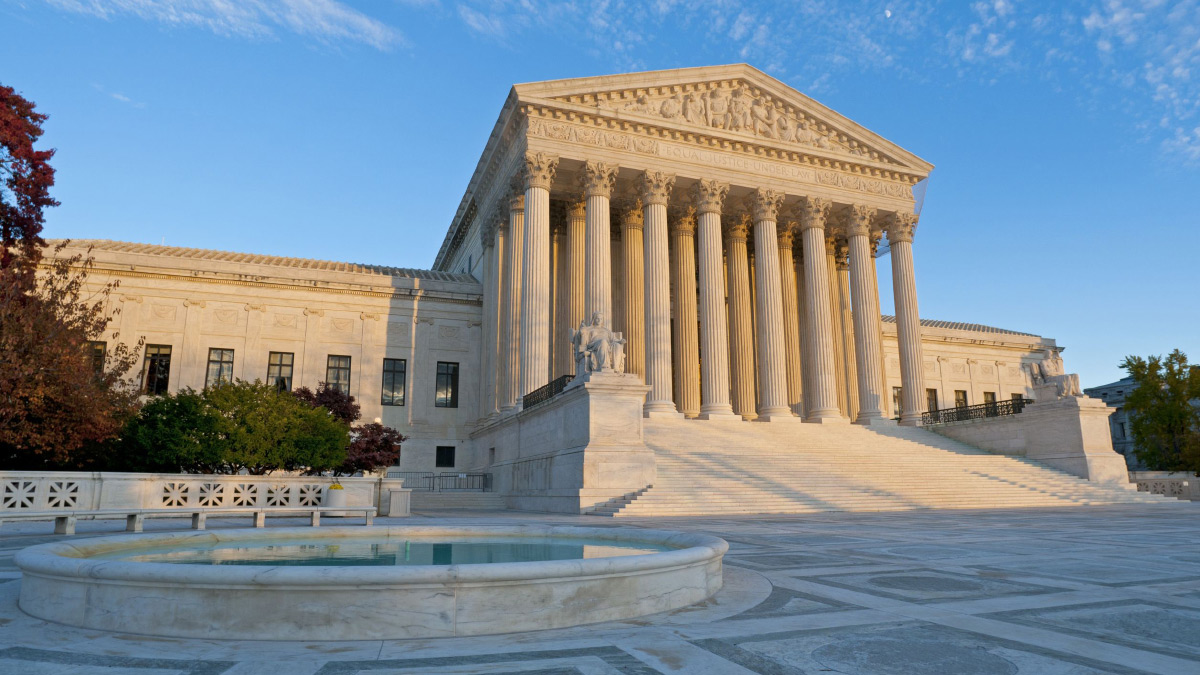The U.S. Supreme Court heard oral argument in Janus v. AFSCME last month, the latest union blockbuster case. At issue are “agency fees” Mark Janus, a nonmember, must pay the union, supposedly because he benefits from union job negotiation efforts. However, the underlying premise for that mandate, accepted by the court in the Abood case, is false.
The premise is that labor laws require unions to represent every employee, including nonmembers. That is why unions justify mandated agency fees, to prevent nonmembers from free-riding on their efforts.
While the National Labor Relations Act allows unions winning a certification election to choose to represent all employees (“exclusive representation”), it does not require it. A union can choose to bargain only on behalf of those who have chosen membership (“members-only representation”). Since unions can choose members-only representation, they have the ability to completely eliminate the free-rider problem. Their choice to exclusively bargain in virtually all cases creates the problem they complain so loudly about, leaving no legitimate claims on others as a result of their own choices.
Why would unions that decry free-riders’ burdens choose exclusive representation, when they can avoid those burdens through members-only representation? Exclusive representation provides union leadership with benefits, even if some free riding occurs, that are greater than any free-riding burdens, or else they wouldn’t have chosen it. That is, the real problem is monopoly unionism, created by exclusive representation, at union discretion, to the detriment all workers who would not have chosen it. Such worker harm cannot justify making them pay for union efforts they reject.
Unions gain from exclusive representation because it vastly strengthens their negotiating power. Labor law requires that firms negotiate with exclusive representation unions, but they need not negotiate with members-only unions. Therefore exclusive representation gives unions monopoly power they would otherwise lack. That is, instead of free-riding workers, the central story is that adopting exclusive representation allows union leaders to free-ride on unwilling workers (who are forced-riders more than free-riders) for their own benefit.
That monopoly power also provides unions the ability to sacrifice the interests of some workers they allegedly represent. Perhaps the best example is newer vs. more-senior members, because the interests of the latter dominate union leaderships. Focusing on pensions, seniority, and preventing change that would threaten more-senior workers’ jobs benefits them, but imposes disproportionate costs on younger workers, which they would escape if they had the option of self-representation or members-only representation. Exclusive representation takes away that escape option, making many younger union members forced riders as well.
Union rhetoric disguises forced riding that harms workers and benefits unions as necessary to solve a supposed free-rider problem. But their ability to eliminate any such problem by themselves, but refusing to do so, reveals the truth. That truth, however, means workers’ freedom of association (which Thomas Jefferson said were part of “the equal right of every citizen in his person and property and their management,” including the “guarantee to everyone of the free exercise of his industry and the fruits acquired by it”) need not be abridged to solve union-caused free-riding problems.
Janus provides another chance for the Supreme Court to re-establish an aspect of workers’ economic liberty that its Abood precedent allowed to be eviscerated. It merely needs to see through unions’ “free-rider” smokescreens to the central issue of monopoly unionism which makes unwilling workers forced riders. And if we remember that America’s standard is “liberty and justice for all,” restoring individual workers’ association rights is justified, even if those who benefit by denying them object.








